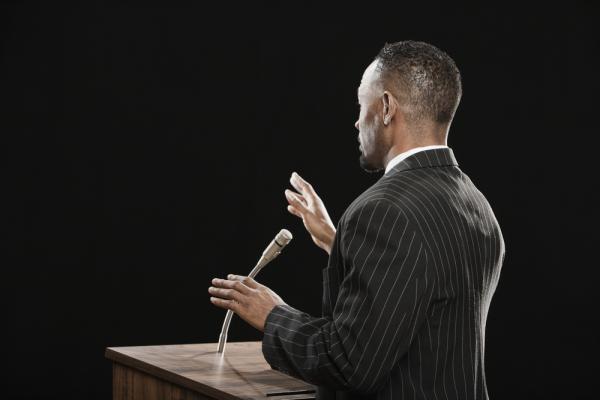The church I co-pastor has been rotating between three preachers of different ethnicities for a year. But it was only last week that I began to realize how hearing only one preacher voice at at time affects how we view God.
Our ears naturally come to hear Jesus talk like our preacher — their voice stands in for his. Jesus’ words come through the preacher’s language and tone. If we hear it every week, we start to assume that Jesus, two thousand years ago, preached in English. Our head knows Jesus spoke Aramaic, but your heart hears Jesus whisper in English.
This starves our theology. If Jesus speaks like a white person, he must be white.
The power of language can override our visual assumptions. Most American movies and pictures depict Jesus with pale skin and blue eyes, something the black church has never bought because most black congregants hear Jesus speak through the cadence of the black preacher. When I hear a sermon from a Korean pastor, Jesus suddenly speaks in Korean, and I see him teaching the Sermon on the Mount sitting lotus position and wearing a Korean dopo. When we speak a language, we breathe in all its assumptions.
The first few times I heard Elder Gerald preach at our church, the way he had Jesus speak to Peter as “my man,” to the disciples as “his homies,” and reprimand the Pharisees with, “ain’t that the truth,” I laughed — the language was novel and unexpected.
But as Jesus continued to speak like a black man, I felt uncomfortable — I could not imagine Jesus speaking Ebonics. I dug to find the root of my discomfort. Buried deep in my judgment was my uncritical assumption that the Palestinian Jesus would actually talk the way I have heard his words read most all of my life.
I always assumed Jesus wouldn’t speak Ebonics, because Jesus would speak like me.
Multiplicity of voice is essential to letting Jesus lead us, and not letting us lord over him. This is why we have four gospels with four different voices of in our cannon. Our standard is not singular. Luke’s Jesus is more Greek than Matthew’s Jesus, who speaks Greek like it was his second language. Mark’s Jesus is Clint Eastwood-esque, mysterious, little talk all action, but without the violence. John’s Jesus loves to pontificate. Ask him for a loaf of bread and he will talk your head off about eternal life, manna, bread of heaven, and cannibalism.
The American Church’s division in our understandings of Jesus neatly follow the fault lines of American society. We hunker in our social groups, worshiping isolated from each other, hearing from preachers who talk like us, and so we naturally come to assume Jesus is like us, in talk and in thought.
I believe that the only way to get a truer counsel of God is to hear preachers who speak differently from ourselves. For me, it is not enough to hear a white pastor preach sympathetically on race issues, or a black guest pastor teach on current issues. They must be permanent voices in the church.
Now that I can see Jesus also as a black person, Jesus is no longer white or Asian or black to me, but someone resurrected and free of all cultural burial wrappings.
Got something to say about what you're reading? We value your feedback!







